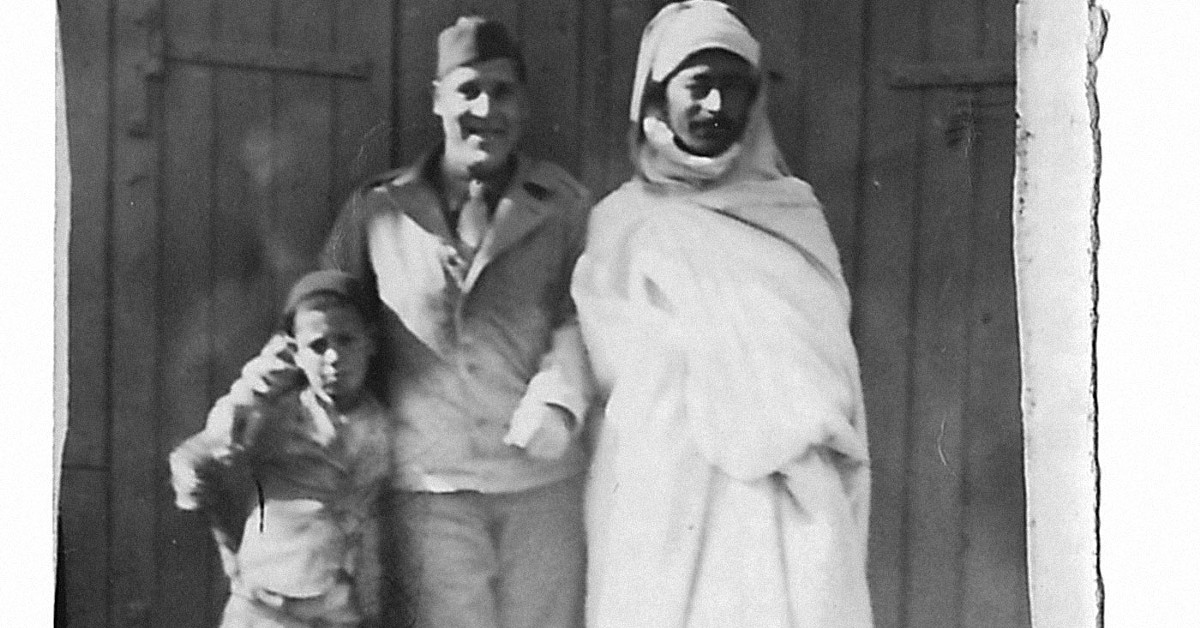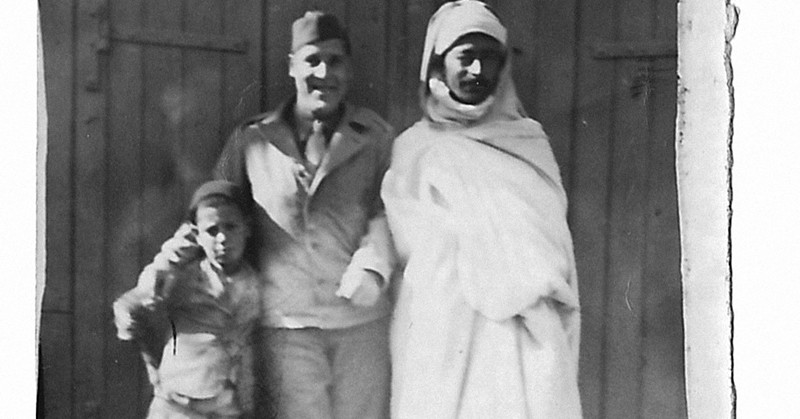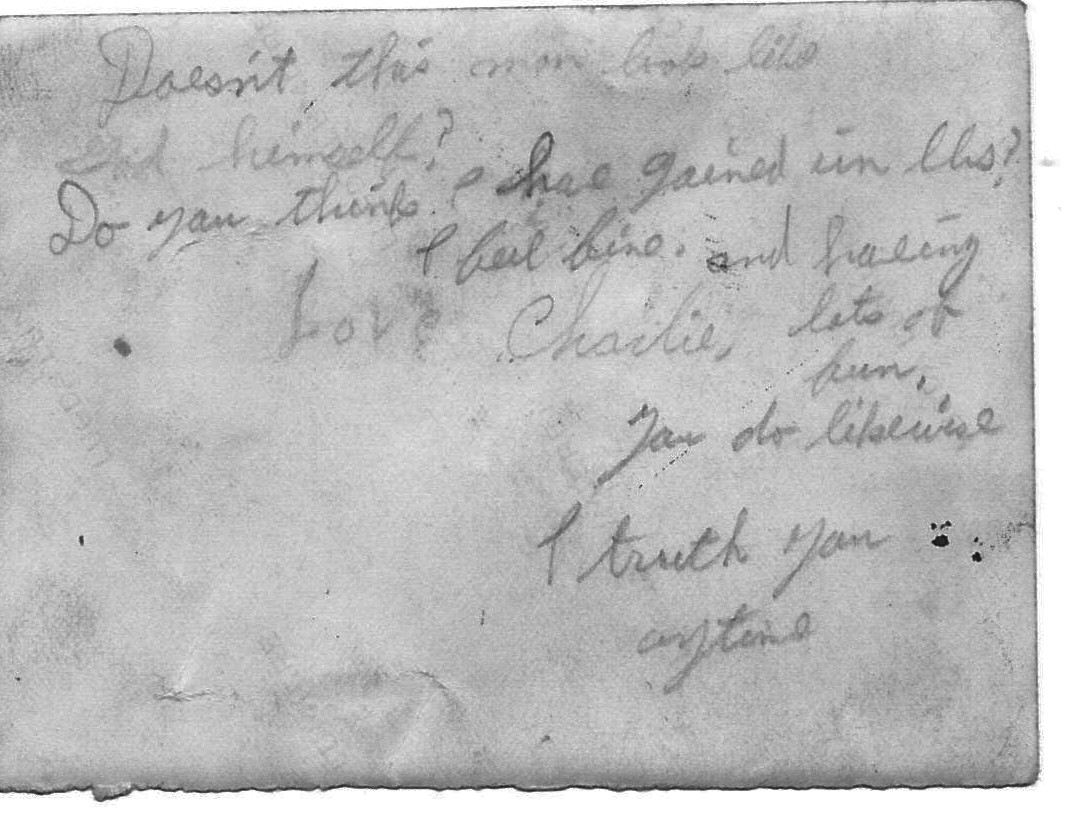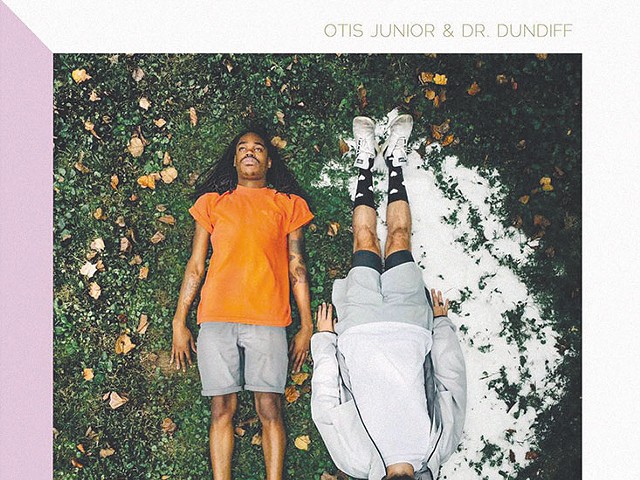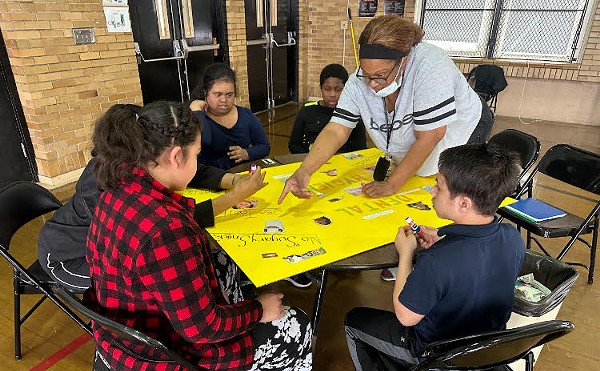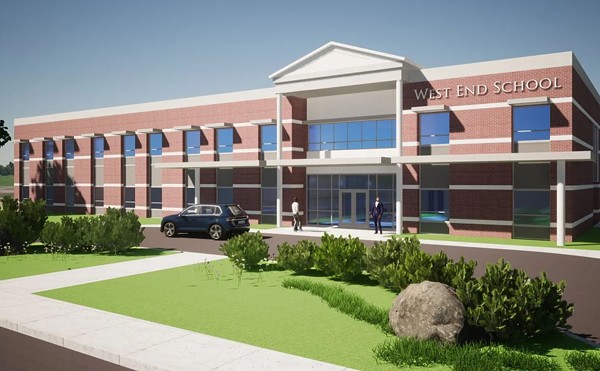In the middle of this photo is Charlie, probably around 1940. The first line of the caption on this photo is the reason I bought it from a bin of forgotten lives. “Doesn’t this man look like God himself?”
There is no irony. In the photos, he is standing next to a man draped in glowing, white cloth and smiling happily. The man looks regal. There is a level of respect and trust that exists in this photo, not only between the men but with the young boy in tattered clothing — his body language mimicking Charlie’s.
Charlie sees this man as a manifestation of the divine. What do you see?
For many Americans, after years of propaganda and mostly foreign attacks by “Islamic terror cells,” images of Al-Qaeda and ISIL fighters are our first thoughts. We don’t see this man as holy because we haven’t been allowed to do so. Islam is an ancient religion, but we revile it like Christians did during the Crusades.
Why can’t we accept this man in the way that Charlie did?
This isn’t a jab.
It is a question for which we should have an answer. We have been trained to fear that which we don’t understand, and instead of immersing ourselves in cultural literacy through interaction and travel, we back away in fear. We isolate, making us far less safe.
We have precedent for our behavior. We are the America that interned the Japanese. We are the America that sends drones, killing Afghani children. We are the America that lynched black bodies. When asked if any of these align with our values, we’d quickly respond no, and, yet, we’ve allowed them to happen. We allow them to happen. We allow people who claim to represent us, commit these atrocities.
When we review the history of conflict in the Middle East and North Africa, where this photo was taken, we have to acknowledge our offenses. We have to remember that the Crusades happened and why that history carries forward as a part of countless others.
We are too quick to indict others before we reflect on ourselves.
With Donald Trump’s immigration ban, I fail to understand this need to isolate America. It seems to me that brown folks aren’t the issue when, inside our nation, the terror most often looks like Trump. Why do we consistently need an ethnic scapegoat when radicalized people are born here? We didn’t ban white New Yorkers from travel because Timothy McVeigh bombed a government building in Oklahoma. He was born in New York. Instead, we increased security at government buildings.
We didn’t ban white folks from black churches after Dylann Roof killed nine members of Emanuel African Methodist Episcopal Church, or because of 400 years of white terror targeted at those places of worship. Writer James Baldwin offered this about racial tension in our nation. “The question you got to ask yourself ... the white population of this country’s got to ask itself is, ‘why it was necessary to have a nigger in the first place?”
What is it about self-reflection that is so painful, we have to create a bogeyman instead?

